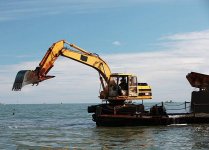ratled
Hero Member
- Feb 18, 2014
- 950
- 2,399
- Primary Interest:
- All Treasure Hunting
Haven't had a chance to read it yet
ratled
https://www.supremecourt.gov/DocketPDF/16/16-970/22901/20171206191927741_16-970%20--%20Rinehart%20v%20California.PDF
ratled
https://www.supremecourt.gov/DocketPDF/16/16-970/22901/20171206191927741_16-970%20--%20Rinehart%20v%20California.PDF
Upvote
0








